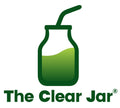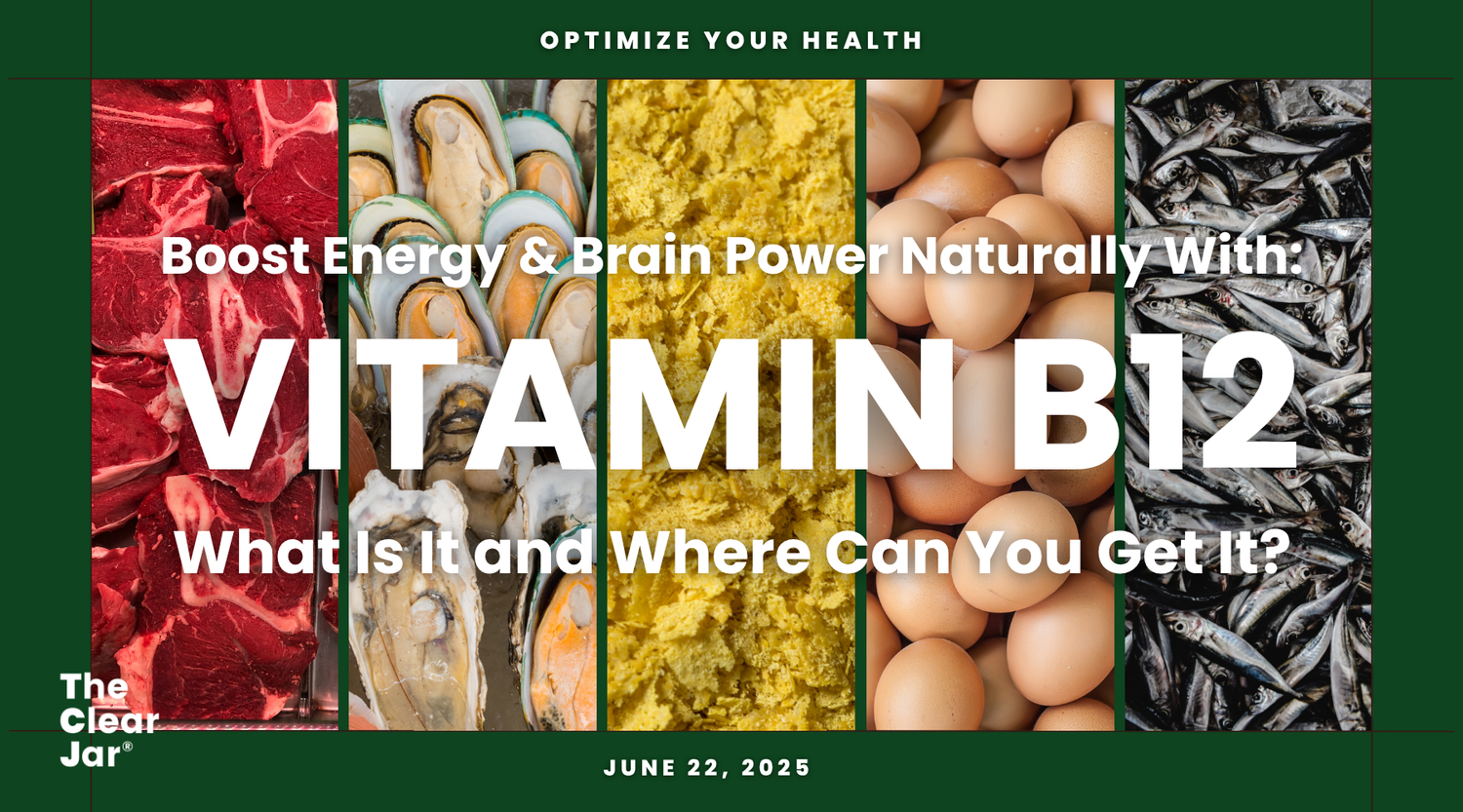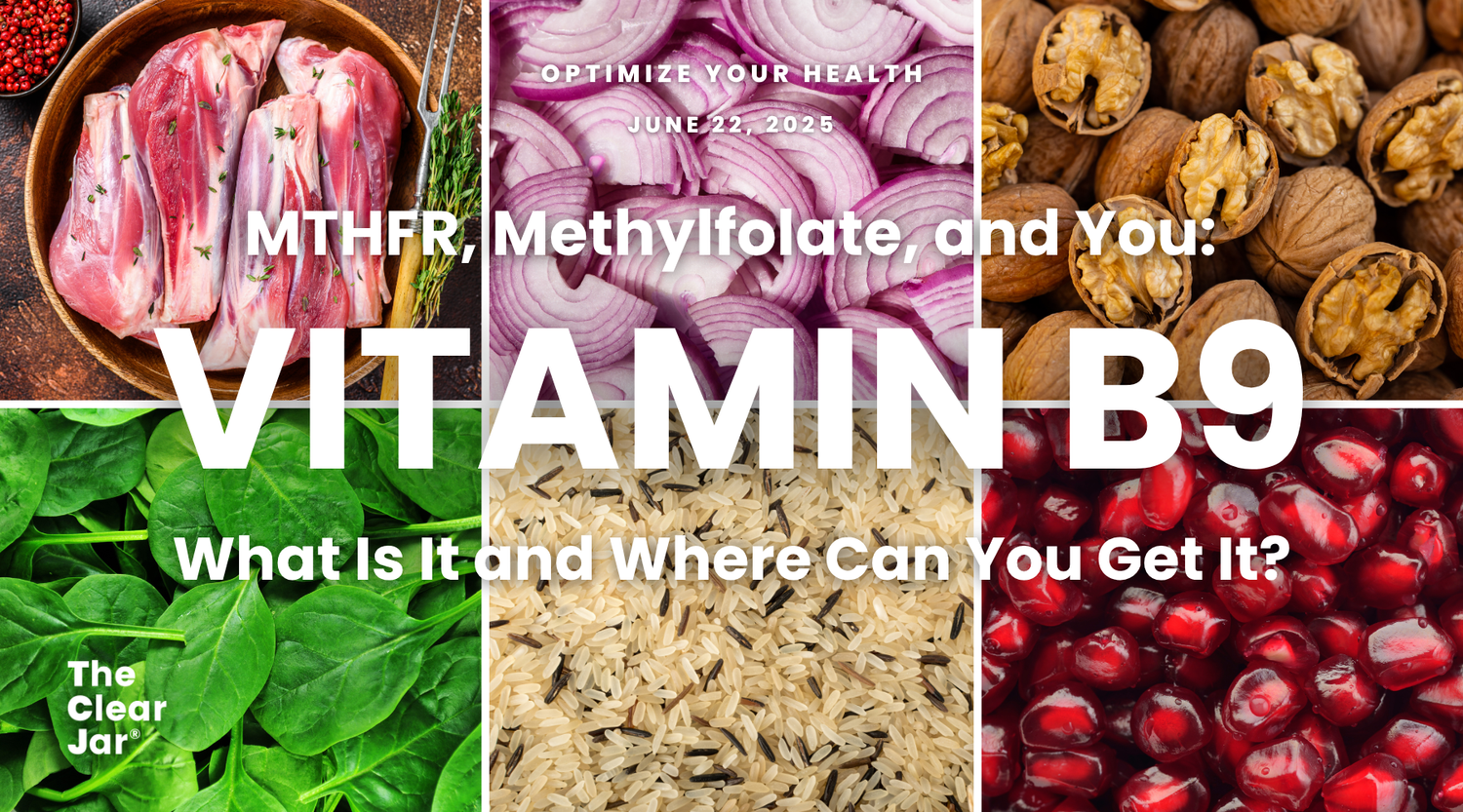What is vitamin B9? Here we explore what this essential vitamin, also known as folate is, why it’s important for your health and wellbeing, particularly during pregnancy, and who might need to consider supplementation.
Content Outline
- What is Vitamin B9?
- What is the function of Vitamin B9 in the human body?
- Vitamin B9 forms: Which is the active form?
- Vitamin B9-rich foods
- Vitamin B9 recipe: Lamb and wild rice salad with pomegranate dressing
- Vitamin B9 supplements
- Why buy food-born vitamins?
What is Vitamin B9?
Vitamin B9, also known as folate or folic acid, is an essential vitamin that’s part of the B-complex. All B vitamins are involved in converting food into energy, but folate also has many other important roles in the body, including DNA and RNA synthesis, forming new red blood cells, and promoting cell growth. Folic acid is also recommended during pregnancy because it is important during periods of rapid cell growth.
Although vitamin B9 is naturally found in many foods, it is commonly present in fortified foods and supplements, both on its own and as part of a multivitamin. Because it is a water-soluble vitamin, folate cannot be stored, so you’ll need to consume it daily as part of your diet to keep your levels optimal.
What is the function of Vitamin B9 in the human body?
Vitamin B9, alongside the other B-complex vitamins, are crucial for maintaining your overall health and wellbeing. Folate is essential for DNA synthesis, cell growth, and the formation of red blood cells. Let’s take a closer look at some of the key roles of vitamin B9 in the human body:
-
DNA synthesis – Folate is important for DNA synthesis and maintenance. It is involved in the production, maintenance, and repair of DNA and in cell division and growth. Specifically, vitamin B9 is a cofactor for the production of purines and pyrimidines, the building blocks of DNA that are also crucial for producing compounds important in DNA replication1.
-
Red blood cell formation – Vitamin B9 is important for red blood cell production and maturation, ensuring they are the correct size and shape to carry oxygen efficiently2. Vitamin B9 deficiency can lead to abnormally large and immature red blood cells called megaloblasts and cause a condition called megaloblastic anaemia3.
-
Amino acid metabolism – Folate breaks down homocysteine, preventing it from building up in the body, increasing the risk of heart disease and stroke4.
Folic acid and pregnancy
Folic acid supplementation is crucial during pregnancy, a time of rapid cell growth, because it lowers the risk of neural tube defects like spina bifida5. Neural tube defects affect the brain and spinal cord of the developing fetus.
Women who are planning to get pregnant are advised to take folic acid supplements at least one month before getting pregnant and continuing throughout the first trimester. The recommended dose is 400 micrograms (mcg) of folic acid per day6.
Vitamin B9 forms: Which is the active form?
The active form of vitamin B9 is 5-methyltetrahydrofolate (5-MTHF) and is the form that the human body can readily use7. It is used by your cells for DNA production, the cysteine cycle, and for regulating homocysteine levels.
Folic acid is a synthetic version of vitamin B9 and must be converted into the active 5-MTHF form before it can be used.
Vitamin B9-rich foods
Wide range of foods naturally contain folate, but many foods are fortified with folic acid, a synthetic version of vitamin B9, which is better absorbed by the body. For example, in 1998, the US Food and Drug Administration, also known as the FDA, encouraged food manufacturers to fortify foods such as bread, cereal, pasta, rice, and other grains with folic acid. This was to help prevent neural tube defects and raise the average folic acid intake by around 100 mcg per day. However, folic acid is naturally found in the following foods:
Vitamin B9 recipe: Lamb and wild rice salad with pomegranate dressing
If you’re looking for a delicious way to incorporate more vitamin B9 into your diet, this lamb and wild rice salad with pomegranate dressing is the ideal choice. It’s packed with naturally folate-rich foods like lamb, wild rice, spinach, and it’s full of flavor, texture, and plenty of other nutrients. The tangy pomegranate dressing adds a refreshing twist, making this salad perfect for a healthy lunch or a satisfying dinner.
Ingredients
- 200g cooked lamb (such as roasted or grilled lamb, diced)
- 185g cooked wild rice (about 135 mcg of Vitamin B9)
- 30g spinach leaves (about 263 mcg of Vitamin B9)
- 75g pomegranate seeds (rich in antioxidants)
- 60g roasted walnuts (providing healthy fats)
- 1 small red onion, thinly sliced (about 40g)
- 15ml olive oil
- 15ml balsamic vinegar
- 15ml pomegranate molasses (for a tangy dressing)
- Salt and pepper to taste
Method
- If you haven’t already, cook the lamb to your preference, e.g. grilled or roasted. Once cooked, allow it to rest for a few minutes before slicing into bite-sized pieces. Alternatively, this is a great way to use up leftover lamb from a Sunday lunch!
- Cook the wild rice according to the packet instructions. Once cooked, set aside to cool slightly.
- In a small mixing bowl, whisk together the olive oil, balsamic vinegar, pomegranate molasses, and a pinch of salt and pepper until combined.
- In a large salad bowl, combine the cooked lamb, wild rice, spinach, pomegranate seeds, red onion, and walnuts.
- Drizzle over the dressing and toss gently to combine.
- Serve straight away.
This refreshing salad is not only rich in vitamin B9, but it also provides a good balance of protein, healthy fats, and antioxidants, making it a perfect meal for lunch or dinner.
Vitamin B9 supplements
While most people will get all the vitamin B9 they need from their diet, there are some groups who will benefit from supplementation because they have certain health conditions, are at risk of deficiency, or are considering pregnancy. Vitamin B9 supplements are available in several forms and can contain folate alone or in combination with several other essential micronutrients.
Some of the groups who may need to consider vitamin B9 supplementation are:
-
Pregnant women – Pregnant women are at a higher risk of folate deficiency because of the increased demand for it during fetal development. So, folic acid supplements are recommended to prevent birth defects.
-
People with malabsorption issues – Health conditions, like celiac disease or Crohn’s disease, which can interfere with the absorption of folate from food, can make vitamin B9 supplementation a necessity for some people.
-
People with MTHFR gene mutations – These mutations cause variations in the gene that encodes the MTHFR reductase enzyme, which is essential for folate metabolism. Mutations in this gene can affect the enzyme's ability to break down homocysteine. It can lead to health problems like eye issues, abnormal blood clotting, and skeletal abnormalities8.
-
Older adults – As we age, folate absorption tends to lessen because of changes in the digestive system, reduced dietary intake, and medication interactions. Some research shows that low folate levels are associated with depression and dementia9.
-
Alcohol drinkers – Chronic alcohol consumption can interfere with the absorption of B vitamins, including vitamin B9, increasing the risk of deficiency10, making supplementation important for people who drink large amounts of alcohol on a regular basis.
-
People who take certain medications – Some medications such as anticonvulsants, like phenytoin, can impact folate metabolism and absorption. While methotrexate, an immunosuppressant used to treat inflammatory conditions, can block the effects of folate, leading to deficiency. It’s important to check with your doctor if any medication you are taking could affect folate absorption11.
Vitamin B9 is available in several forms, each with its own properties and benefits. The two main forms are folic acid and methylfolate, but there are other variations available:
-
Folic acid – The most common vitamin B9 supplement form available. It is a synthetic version that is also used to fortify foods. Folic acid is converted into the active form of vitamin B9 in the body and is widely available and affordable.
-
Methylfolate or 5-MTHF – This is the active, bioavailable form of folate which means if you take these supplements, your body can use them straight away without the need to convert them. It’s available on its own or as part of a multivitamin.
-
Folate – The naturally occurring form that’s found in many foods, but is also available as a supplement. Folate is better absorbed by the body than folic acid, but it still needs to be converted into its active form.
-
L-Methylfolate – A bioactive form of methylfolate that is usually given to people with severe folate deficiency. It is the most bioavailable form for individuals who struggle to metabolize folic acid.
-
Folate with vitamin B12 (Folic acid & B12) – Vitamin B9 supplements are sometimes combined with another essential B vitamin, B12. Together, these nutrients work together and are especially important for producing healthy red blood cells, DNA synthesis, and energy production. A lack of these nutrients can lead to vitamin B12 or folate deficiency anaemia, which can cause symptoms like weakness, tiredness, shortness of breath, pins and needles, and neurological effects, including cognitive impairment12.
Which Vitamin B9 supplement is best?
Deciding which vitamin B9 supplement is best will depend on your individual needs, lifestyle, and whether you have any underlying health conditions that affect folate absorption.
For example, if you are planning to get pregnant or are in the early stages of pregnancy, you should consider a daily 400 mcg folic acid supplement to support the healthy development of your baby.
If you are a vegan or vegetarian, you might consider a folic acid and vitamin B12 supplement to avoid folate or B12 deficiencies. Or if you would prefer to take natural forms of vitamin B9 over synthetic versions, you might consider food-born supplements.
Why buy food-born vitamins?
Vitamin B9 is critical for several processes in the human body and for growth and development during pregnancy to prevent birth defects. By including a variety of B9-rich foods in your diet and considering supplements, you can ensure that your body remains in peak condition. Try the lamb and wild rice salad recipe to get a delicious, folate-packed meal that will keep you energized and refreshed.
Then, consider a food-born multivitamin from The Clear Jar to boost your body’s nutrient levels.
When you buy from us, you can be assured that they are:
-
non-toxic
-
are 100% food-based
-
are additive-free
-
are cost-effective
Written by: Leanne Edermaniger MSc.







